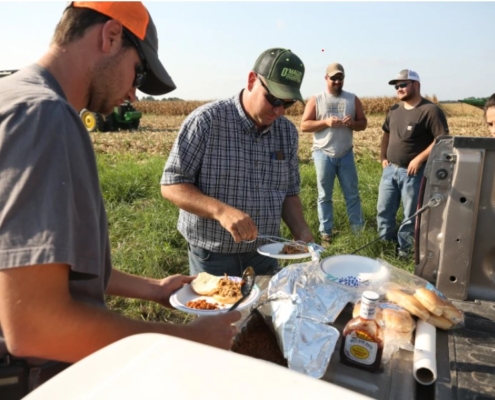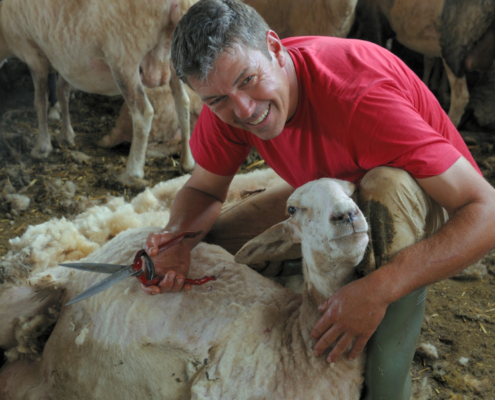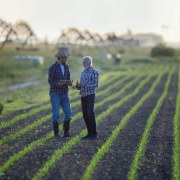Harnessing Farm Team Success with the 5 Love Languages
Have you ever taken a moment to reflect on what truly unites your farm team? Building strong connections within this team is both an art and a science, especially in the unique setting of agriculture. Achieving farm team success requires the harmony of individual contributions, which is as fundamental as the soil itself. Understanding the distinct needs and preferences of each team member can turn a good season into an outstanding one.
You might have tried various approaches, like incentives or salary bumps, yet found yourself facing the same team management hurdles. This raises an important question: What do your team members truly seek?
Recognising the deep-seated desires of others is challenging. Yet, the work of Dr. Gary Chapman, particularly his concept of the “5 Love Languages,” has shed light on this path for many years. Originally developed to deepen personal relationships, this framework proves equally powerful in cultivating strong, united farm teams. By adopting these principles, farm leaders can not only draw in and keep the right people but also make every member feel valued, understood, and integral to the farm’s success.
Love Language #1:
Words of Affirmation: Building Confidence with Care

Positive reinforcement through words of affirmation can significantly impact an individual’s self-esteem and productivity. The time-tested sandwich method—commending a job well done along with key points, providing constructive feedback, then ending with another positive note—can be an effective strategy. This approach not only addresses areas for improvement but does so in a manner that maintains the individual’s morale. Genuine appreciation, when expressed genuinely, can motivate team members to strive for excellence and feel valued for their contributions.
Love Language #2:
Quality Time: The Essence of Connecting with your Farm Team

Photo Source: agweek.com
For many, quality time stands as a testament to genuine care and attention. In the fast-paced environment of a farm, taking the time to engage with team members individually can make a significant difference. Whether it’s a one-on-one during a tractor ride or a team lunch, these moments are opportunities to connect beyond work tasks. Discussing not just work but personal interests and concerns fosters a human-to-human connection that can enhance job satisfaction and commitment. Remember, it’s not always about the work; it’s about showing that you value them as individuals.
Love Language #3:
Receiving Gifts: Understanding the Limits of Monetary Incentives

Recognising the limitations of monetary compensation as a motivator is crucial, despite its importance. Relying solely on financial rewards may initially boost performance, yet their impact tends to plateau or even diminish over time. This underscores the importance of addressing the deeper needs and love languages of your team members. True motivation and satisfaction extend beyond financial incentives, deeply rooted in recognition, personal growth, and a sense of belonging. Thoughtful gestures—like customising work apparel with the farm’s logo, providing gift cards from local suppliers, or granting a day off during slower seasons—effectively transcends the value of financial compensation, showcasing a commitment to the multifaceted aspects of team motivation.
Love Language #4:
Acts of Service: Demonstrating Care Beyond Words

Acts of service, such as jumping in to help with tasks during peak seasons, taking the time to renovate a team member’s house on your farm or improving workplace amenities, speak volumes about the value and respect a farm leader has for their team. These gestures show a commitment to not just the business’s success but to the well-being and satisfaction of the team. When leaders go out of their way to enhance their team’s quality of life, loyalty and motivation often follow.
Love Language #5:
Physical Touch: The Power of a Personal Touch

In a good work environment, appropriate physical gestures, such as a handshake, a pat on the back, or a simple nod of appreciation—combined with engaging conversation and intentional eye contact, can reinforce positive feedback and acknowledgment. These gestures, when used judiciously and respectfully, can strengthen the personal connection and appreciation between farm managers and their team members. It’s a reminder of the personal touch in every achievement and acknowledgment.
Incorporating the five love languages into team management practices offers a multifaceted approach to leadership in the agricultural sector. By understanding and applying these principles, farm leaders can create a more engaging, supportive, and productive work environment. This approach not only benefits the individual team members but also contributes to the overall success and sustainability of the farm. Embracing these languages can transform routine interactions into opportunities for meaningful engagement, ultimately fostering a culture of appreciation, respect, and mutual growth.
Dive deeper into the ‘5 Love Languages‘ and explore additional, practical examples to seamlessly integrate them into your farm management practices. Uncover your own primary love language and gain insights on how to leverage this understanding to foster a stronger, more cohesive team. Download our guide to ‘5 Love Languages for Farm Teams‘ now and start transforming your farm’s work environment today.
If you found this article helpful, share it with your network to help others unlock their farming potential. Don’t forget to like and follow us on social media for more insightful tips: Facebook, Instagram, and LinkedIn. Let’s empower more farmers together!

Ram is the founder and director of Enable Ag an agriculture consultancy dedicated to helping farmers across Australia create the time and freedom they deserve after generations of hard work. Enable Ag’s ‘Time-Freedom Program‘ is a new and unique approach that empowers farmers to reclaim their time by implementing tailored strategies, systems, and support to optimise their farm operations and achieve a more balanced lifestyle.

 Enable Ag
Enable Ag
 Enable Ag
Enable Ag Enable Ag
Enable Ag Enable Ag
Enable Ag Enable Ag
Enable Ag Enable Ag
Enable Ag Enable Ag
Enable Ag